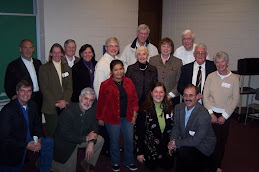June 12, 2013
NEW YORK TIMES
Pope Is Quoted Referring to a Vatican
By RACHEL DONADIO
The remarks — which the Vatican spokesman did not deny and the participants at the private audience confirmed — appeared to be part of an effort by the pope to take on the entrenched interests in the
Francis, who portrays himself as a simple pope of the people, has made it clear that one of his highest priorities is to put the
“It’s pretty incredible that the pope said these things,” said Sandro Magister, a Vatican expert at the Italian weekly L’Espresso. “I don’t think there’s any doubt on the foundation of the phrases attributed to him. Otherwise they would have denied it.”
The pope made the remarks at the
“In the Curia, there are also holy people, really, there are holy people. But there also is a stream of corruption, there is that as well, it is true,” he said in Spanish, according to a loose summary of the meeting posted on a Chilean Web site, Reflection and Liberation, and later translated into English by the blog Rorate Caeli.
“The ‘gay lobby’ is mentioned, and it is true, it is there ... We need to see what we can do,” Francis continued, in the document, produced here verbatim.
On Tuesday, the Vatican spokesman, the Rev. Federico Lombardi, did not deny the reports of Francis’s remarks, saying only that he had no comment on a private meeting — a marked shift from past months, in which the
Also on Tuesday, the Latin American group, known by its Spanish acronym CLAR, confirmed the remarks and issued an apology, saying it was distressed that its summary had been published.
Long the subject of speculation in Vatican circles, the term gay lobby had emerged most recently in juicy, unsourced reports in the Italian daily newspaper La Repubblica and a news weekly, Panorama, before the March conclave in which Francis, the former Cardinal Jorge Mario Bergoglio of Buenos Aires, was elected.
Before his retirement on Feb. 28, the reports said, Benedict had been worn down by corruption scandals — including what they said was a network of gay priests inside the
A secret dossier compiled by three cardinals Benedict had asked to investigate a leaks scandal at the
Veteran watchers of the Roman Curia were unfazed by Francis’ remarks. One
“If you have an institution as big as the
Others said that the remarks were in line with the new pope’s emphasis on openness.
“A lobby of those who blackmail each other proliferates if you don’t talk about it, if there’s no air,” said Alberto Melloni, a Vatican historian and director of the John XXIII Foundation for Religious Studies in
“This is a question of blackmail and blackmailability, not homosexuality,” he added.
Two of the biggest internal threats to Benedict’s papacy, including a scandal of leaked documents, were driven by factions within the
Writing in La Repubblica on Tuesday, the Vatican expert Paolo Rodari said that Francis had also mentioned the gay lobby in a meeting last month with bishops from
In the summary of Francis’s remarks to the Latin American group, the pope said that he was moving ahead with improving
In its statement, CLAR added that it had not made a recording of Francis’s remarks, but that those present, a half-dozen men and women, had written a summary of his points for their personal use. “It’s clear that based on this, one cannot attribute with certainty to the Holy Father singular expressions in the text, but just the general sense,” the statement said.
The summary also quoted the pope as saying that he had not imagined he would be elected pope. He said he had come to
Gaia Pianigiani contributed reporting.


